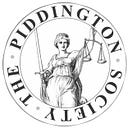Fabian Ponton on pathways, practice and progress on Indigenous issues in the law
“A good way to start would be to listen to Indigenous people and get a deeper understanding of the issues they face and the reasons behind those issues.”
Fabian Ponton is a criminal defence lawyer, practising for 2.5 years. His father is a Ballardong man, who was born and raised on the Aboriginal reservation in Goomalling.
Fabian attended Lockridge High School and undertook the Aboriginal Pre-Law Programme at UWA in 2004, and graduated with a Bachelor of Laws from UWA in 2009.
After graduating he knew he wanted to travel so after a year working FIFO, he moved to London where he lived for almost five years and ended up working in Facilities at Jamie Oliver’s Head Office.
Now back in Perth, he completed his practical legal training requirements and after admission started working with Damien Cripps, where he currently practices.
So, we asked him a few questions.
What progress you have seen on Indigenous issues?
I think there has been progress in education and employment programs targeting Indigenous people in particular.
I feel educational institutions and certain areas of the private sector have made a genuine effort to engage more Indigenous people.
There also seems to be an acknowledgement from the wider community that more needs to be done on Indigenous issues.
Where do you see the opportunities for progress?
With the acceptance that Indigenous issues need to be addressed, I see opportunities for progress coming from Indigenous people having a greater input into the ways those issues can be addressed.
I think with matters like the Attorney General looking into reforms, as well as Constitutional recognition and an Indigenous voice to Parliament being on the national agenda, that these provide significant opportunities for Indigenous people to influence the policies in ways like never before.
As a young Indigenous man, what challenges have you had in practice and how have you overcome them?
Initially the challenge was getting into practice. As the first one in my family to finish high school let alone go to university, I didn’t have anyone to go to for advice or mentoring for a while and felt like a bit of an outsider.
I still feel a little bit like an outsider in the industry, but I’m trying to get myself more involved so it doesn’t feel that way.
Since getting into practice, the challenge has been trying to balance the demands of being in private practice against wanting to use my position to assist Indigenous people in the criminal justice system.
I’m really lucky to be working for someone who understands those demands and our firm is always willing to assist when we can. I think we are getting better at identifying when we can help or where we can direct people.
How can the average lawyer give a voice to Indigenous people?
I think a good way to start would be to listen to Indigenous people and get a deeper understanding of the issues they face and the reasons behind those issues.
Once there is that understanding, hopefully the average lawyer will want to use their knowledge and services to help address the issues.
What do you wish more lawyers knew about Indigenous issues?
Other than a deeper understanding of the issues, which I think is something which is needed more generally, I wish more lawyers knew how they might be able to help address those issues.
There are a lot of bright minds in the law and I think if lawyers from all areas knew how they could help some real progress could be made.
What does justice mean to you?
To me, justice means everyone having a voice. Everyone being able to have their side heard and ensuring the outcome is fair and just.
